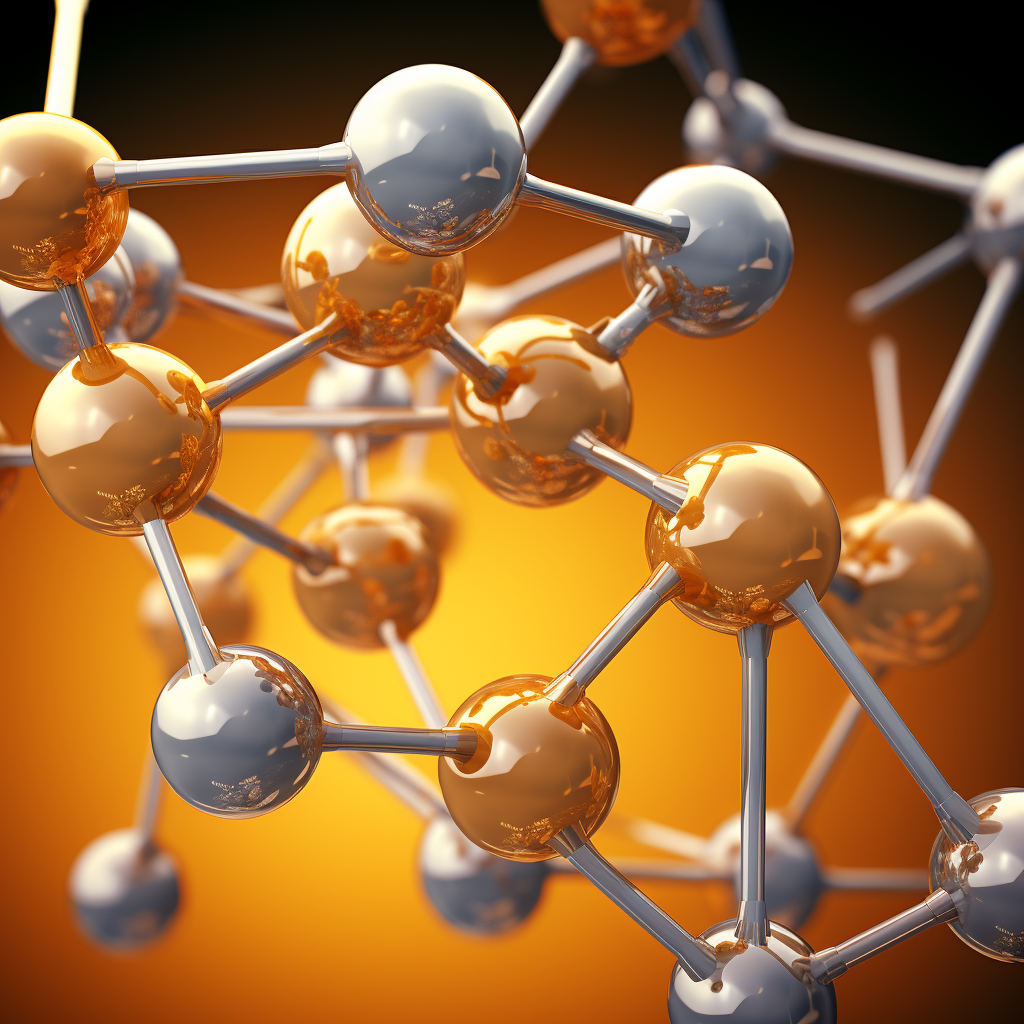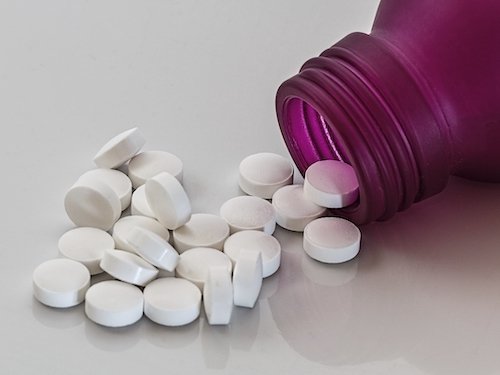Glutathione
- Introduction
- Composition of Glutathione
- Mechanism of Action: How Glutathione Works
- Uses of Glutathione
- Off-Label Uses of Glutathione
- Dosage and Administration Guidelines
- Side Effects of Glutathione
- Interactions with Other Medications
- Contraindications and Warnings
- Special Considerations in Administration
- Handling and Storage of Glutathione
- Overdosage: Symptoms and Management
- Important Precautions and Careful Administration
Introduction
Glutathione, an antioxidant in the human body, comprises glutamine, cysteine, and glycine. It plays a role not only in protecting against oxidative stress but also in detoxification processes. The presence of glutathione is crucial for physiological functions, highlighting its significance in maintaining cellular integrity and overall health.
The discovery of glutathione can be traced back to the 20th century. Over the years, scientists have made progress in understanding its role in cellular processes. Initially recognized for its properties, further research has revealed a broader range of biological importance associated with glutathione. As a result, it has found increased applications in therapeutic fields.
Composition of Glutathione
Chemical Structure and Properties: Glutathione stands out due to its molecular structure, characterized by a γ peptide linkage between the amine group of cysteine and the carboxyl group of the glutamate side chain. This uncommon structure plays a role in its biological functions, such as its ability to neutralize free radicals and eliminate harmful substances.
- Molecular weight: Glutathione weighs 307.32 g/mol.
- Solubility: It easily dissolves in water.
- Appearance: When it is in a concentration, it has a white powder form.
Variants and Derivatives: Researchers have developed various forms of glutathione, including the reduced form known as GSH and the oxidized form called GSSG. Additionally, they have synthesized liposomal variants to enhance its bioavailability and enable targeted delivery within the body.

Mechanism of Action: How Glutathione Works
Glutathione has a role in various cellular processes, including DNA synthesis and repair, toxin and carcinogen metabolism, protein synthesis, immune response regulation, and cell growth. It acts as an antioxidant by neutralizing oxygen species (ROS) and other free radicals. This helps reduce stress and is essential for preventing cellular damage, slowing aging, and preserving the health of tissues and organs.
Uses of Glutathione
Glutathione has a range of applications in various therapeutic settings. Some of its uses include managing conditions related to stress1, treating liver diseases 2, and serving as an adjunct in chemotherapy and radiation therapy3. In dermatology,, glutathione is well known for its skin-lightening properties, making it a popular ingredient in skincare and cosmetic products4. The cosmetic industry4 particularly values its ability to reduce melanin production. Furthermore, glutathione is highly regarded as a supplement because it bolsters the immune system, increases energy levels, and supports overall health and wellness15.
1: Verywell Health 2: WebMD 3: RxList 4: Hello Doctor 5: Medical News Today
Off-Label Uses of Glutathione
Although recent research has been delving into the possibilities of using glutathione to address diseases and respiratory conditions and as an anti-aging solution2, these potential uses have not yet received clinical support2. Additionally, anecdotal evidence and individual case studies have hinted at benefits in areas such as autism spectrum disorders and chronic fatigue syndrome2. However, it’s important to note that these applications still lack verification2.
1: Verywell Health 2: Medical News Today.
Dosage and Administration Guidelines
Dosages for Conditions: The amount of glutathione can differ depending on the specific condition being addressed. For example, the recommended doses can vary from 500 mg to 2000 mg per day, considering factors such as how it is administered and individual health needs.
Administration Methods: Glutathione can be taken orally intravenously or through inhalation. Each method has unique bioavailability and effectiveness profiles designed to meet specific treatment needs.
Side Effects of Glutathione
Possible Adverse Effects: While generally well tolerated, a few people may encounter side effects like bloating, abdominal cramps, and allergic reactions. In instances, glutathione has the potential to cause more severe side effects, such as narrowing of the airways when inhaled, especially for individuals with asthma.

Interactions with Other Medications
Interactions with Medications: It's essential to know that Glutathione might interact with specific medications like acetaminophen and chemotherapeutic agents. This interaction could potentially impact the effectiveness of these medications. Increase the chances of experiencing side effects.
Interactions with Dietary Supplements: It's advisable to keep an eye on the the use of Glutathione with other supplements, especially those with antioxidant properties. Monitoring this combination is essential to prevent over-supplementation.
Contraindications and Warnings
Usage Precautions: It is essential to exercise caution or even avoid using glutathione in individuals with asthma, renal or hepatic impairment, and those with a known allergy to its components.
Safety Warnings for Certain Groups: Extra care should be taken when considering the use of glutathione in pregnant or breastfeeding women, children, and the elderly. This is because research is available on its effects in these specific populations.
Special Considerations in Administration
Administration to Elderly Patients
Elderly individuals frequently have characteristics regarding how their bodies process medications. This means that when giving Glutathione, it's essential to be cautious and thoughtful. We need to take into account factors like weakened organ function medications they may be taking and their increased vulnerability to experiencing side effects. Starting with doses is crucial, and we should closely observe the effectiveness and tolerability of the treatment while adjusting the dosage as necessary.
Use in Pregnant Women and Nursing Mothers
The use of Glutathione during pregnancy and breastfeeding needs consideration, as there is limited research available for these specific populations. Although some studies indicate its safety, it is recommended to use Glutathione when necessary, considering whether the potential benefits outweigh any possible risks to the unborn baby or nursing infant.
Administration to Children
When dealing with patients, exercise extra caution when administering Glutathione. The dosage must be adjusted meticulously, considering the childs age, weight, and overall health condition. Maintaining monitoring for any adverse reactions is essential to guarantee the safety and efficacy of the treatment.
Handling and Storage of Glutathione
Proper Storage Conditions
- It is recommended to store Glutathione away from direct sunlight and moisture at room temperature.
- Keep the product in its packaging until you are ready to use it to ensure its stability and effectiveness.
- Avoid freezing it, as this can potentially change the composition of Glutathione.

Handling Precautions and Safety
It is crucial to adhere to standard safety procedures when dealing with Glutathione in its powdered or injectable form. This involves wearing gloves and avoiding contact with the skin or eyes. If there is any exposure, rinse the affected area thoroughly with water. Furthermore, it is essential to dispose of any leftover or waste material to prevent accidental ingestion or environmental contamination.
Overdosage: Symptoms and Management
Recognizing Overdosage
Excessive intake of Glutathione may lead to symptoms like stomach cramps, feeling bloated allergic reactions, and in severe situations, it can even cause neurotoxic effects. It is important to remain watchful for these indications when large doses are given, such as during intravenous therapy.
Emergency Management and Treatment
If someone takes too much Glutathione, it is essential to seek immediate medical help. The treatment mainly focuses on providing support and addressing the symptoms. This involves stopping the use of Glutathione and managing symptoms. Sometimes, hospitalization and specialized care may be necessary to minimize the impact.
Important Precautions and Careful Administration
Monitoring and Follow-up
Regularly monitoring and staying in touch are aspects of any Glutathione therapy plan. This involves conducting blood tests, checking liver function, and being vigilant for any indications of adverse reactions. Adjustments to the dosage or treatment approach, might be needed depending on how the patient responds and tolerates the therapy.
Patient Education and Awareness
Educating patients on utilizing Glutathione's potential adverse effects and the significance of following prescribed routines is crucial. Patients should be motivated to communicate any unfavorable reactions or concerns. Offering information enables patients to engage in their treatment actively, ultimately improving Glutathione therapy's effectiveness and safety.




















